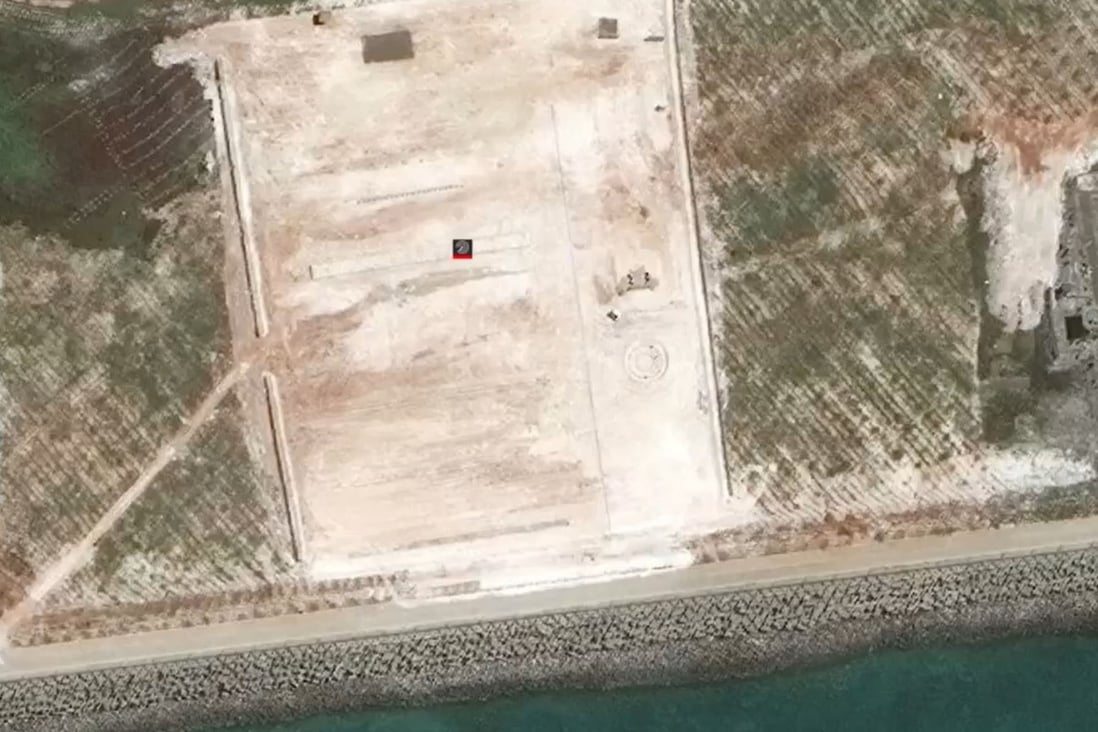“An armed attack against the Philippines’ armed forces, public vessels or aircraft in the Pacific, including in the South China Sea, will trigger our obligations under the US-Philippines Mutual Defense Treaty,” State Department spokesman Ned Price told reporters.
known as maritime militia
“We share the concerns of our Philippine allies regarding the continued reported massing of PRC maritime militia near the Whitsun Reef,” Price said, referring to the People’s Republic of China.
More than 200 Chinese boats were first spotted on March 7 at Whitsun Reef, around 320 kilometers (200 miles) west of Palawan Island in the contested South China Sea, although many have since scattered across the Spratly Islands. President Joe Biden has vowed a robust defense of allies and, in a rare point of continuity with his predecessor Donald Trump, has supported strong pushback against Chinese assertiveness. source
*** Big money says that the Biden admin is too feckless to respond, meaning China gains control over the Spratley Islands unless other immediate nations take military action. Why? President Biden asserts he had a two hour phone conversation with President Xi….no mention of the pandemic or the contested claims in the South China Sea. Maybe Kamala knows….
The South China Sea is one of the most important bodies of water on the planet. Besides China, multiple nations including Vietnam, Malaysia, and the Philippines have their own, sometimes overlapping, claims to portions of the South China Sea. In addition to historic claims, according to the United Nations Convention for the Law of the Sea (UNCLOS), a nation has sovereignty over waters extending twelve nautical miles from its land and exclusive control over economic activities 200 nautical miles out into the ocean.
The South China Sea is rich with natural resources such as oil and gas. It accounts for 10 percent of the world’s fisheries and has provided food and a way of living for millions of people in the region for centuries. The region is also one of the busiest trading routes, with about one-third of global shipping and more than $3 trillion worth of global trade passing through this area annually.
When Xi Jinping became Communist China’s supreme leader in 2013, he regarded transforming China into a maritime power, including the expansion in the South China Sea, as a key component to his great Chinese rejuvenation. According to the Chinese Communist Party’s own publication, “On the South China Sea issue, [Xi] personally made decisions on building islands and consolidating the reefs, and setting up the city of Sansha. [These decisions] fundamentally changed the strategic situation of the South China Sea.” source
Maxar satellite photos show that China has added land mass to the Subi Reef. Further, the Philippine Coast Guard/National Task Force West also has photos of 200 Chinese ships moored at the Whitsun Reed.
***
The Spratly Islands consist of more than 100 small islands or reefs surrounded by rich fishing grounds – and potentially by gas and oil deposits. They are claimed in their entirety by China, Taiwan, and Vietnam, while portions are claimed by Malaysia and the Philippines. About 45 islands are occupied by relatively small numbers of military forces from China, Malaysia, the Philippines, Taiwan, and Vietnam. Since 1985 Brunei has claimed a continental shelf that overlaps a southern reef but has not made any formal claim to the reef. Brunei claims an exclusive economic zone over this area.
The islands are strategically located near several primary shipping lanes in the central South China Sea; includes numerous small islands, atolls, shoals, and coral reefs and the attraction for all the countries claiming control/ownership is nearby oil- and gas-producing sedimentary basins indicating potential oil and gas deposits, but the region is largely unexplored.
Why the notion that the Biden administration has a feckless approach on China and the disputed island? China is assessed to have 7 outposts (Fiery Cross, Mischief, Subi, Cuarteron, Gavin, Hughes, and Johnson reefs); the outposts on Fiery Cross, Mischief, and Subi include air bases with helipads and aircraft hangers, naval port facilities, surveillance radars, air defense and anti-ship missile sites, and other military infrastructure such as communications, barracks, maintenance facilities, and ammunition and fuel bunkers. source









